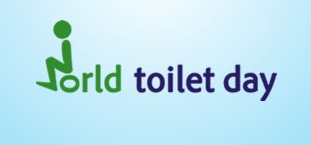This funny-sounding idea might be the most important “holiday” in the world. Seriously.

More than 2.5 billion people—a third of the world’s population—don’t have access to adequate toilets. (600 million people in India alone lack good toilets.) That leads to what the U.N. calls “open-air defecation,” or doing your business in the streets, a field, by a river, etc. That leads to more health problems. Diarrhea causes the deaths of more than 800,000 babies and toddlers every year in the developing world, making it deadlier to that age group than measles, malaria, and AIDS combined.
None or not enough public toilets is problematic too, especially for girls and women. “When schools offer decent toilets, 11 percent more girls attend. They are less vulnerable to assault,” Ban said at the U.N. Without an enclosed private toilet, girls have to go to the bathroom outside, which leaves them more open to assault.
The U.N. hopes to use World Toilet Day as an annual call to arms to increase awareness of these and other sanitation and health problems related to toilets. Along with co-sponsor WaterAid, a clean water charity, the U.N. is aiming for an end to open defecation by 2025 and to cut by 50 percent the number of people without access to sanitation.
Here is a video that WaterAid created to raise awareness.
For more info, visit World Toilet Day.







